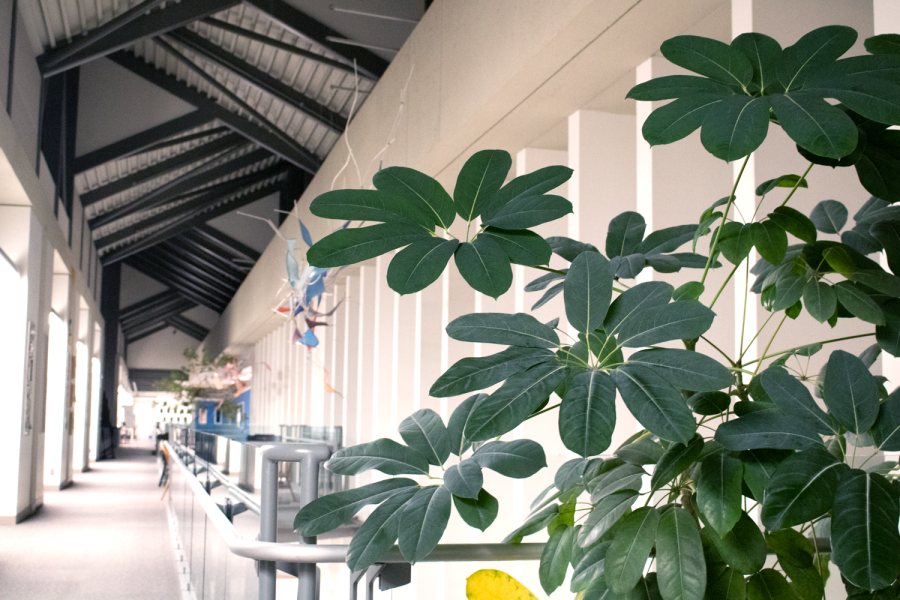The Sustainability Network brings together students from a variety of departments and organizations working on sustainability-related projects from around campus. You can get in touch with the network with your ideas or questions by emailing [email protected] or [email protected], or by coming to the next (potluck!) meeting from 12:00-1:30 p.m. at the EcoHouse.
As a human, I intuitively understand cause and effect. If I don’t eat, I get hungry. If I poke my sister too many times she gets angry. Something that is harder for me to rationalize is, for example, riding my bike so that I don’t emit the carbon dioxide that is causing climate change. Global climate change is such a vast and systemic problem that any action I take personally will have no instantaneously visible feedback. In choosing to ride my bike, my actions are not predicated on a tangible effect, but rather on my own faith that what I am doing will make a difference. There is no silver bullet that will solve these issues. I may never witness the effects of my actions, sustainable or otherwise. This is something that I grapple with personally every day.
Sustainability is the ability to endure and regenerate, to be resilient. A sustainable community remembers the past and imagines the future, while still being concerned with the present. A sustainable company, organization or institution considers long-term implications and consequences. Thinking in a sustainability framework involves considering multiple scales, levels and scopes. Sustainability is about the interconnectedness of issues and problems, and the necessity of considering systems rather than isolated issues.
I am interested in sustainability because I do not think that the problems that the world faces today have simple causes or solutions. If I fail to appreciate the complexity of a problem, I doom myself to frustration and failure in trying to solve it. I am interested in this complexity and in finding the balance between practicality and imagination that it will take to tackle global and local issues in the world today. That is not to say that I don’t get frustrated, because I often do. It is really easy to feel fed up with the world and sometimes it really gets me down. That is where my work outside the classroom comes in.
I believe that the best place to try out new ideas and hone your problem-solving skills is within your own community. When it comes to working in sustainability, there are a lot of great options at Macalester. For my part, I have chosen a combination of ways to be involved and engaged with my community. I work in the Sustainability Office with staff, fellow students and other departments on campus to manage recycling, energy consumption, food sustainability and composting. The students in the Sustainability Office are a part of a broad network of student workers and organizations across campus who are also engaged in sustainability work. The Sustainability Student Network meets every other week to talk about collaboration across projects and provide support. I do this work because I believe it contributes to a more sustainable Macalester community.
I was also one of many who last year helped organize Macalester’s participation in a protest against Enbridge’s tar sands pipeline in Minnesota. MPIRG’s Environmental Taskforce along with many other interested students showed up in droves to tell legislators why this pipeline would hurt Minnesotan communities and ecosystems. I do this work because I believe it contributes to a more sustainable Minnesota.
I also work with Fossil Free Mac, which is an incredible group of thoughtful and dedicated people advocating for Macalester to divest from fossil fuels. Fossil Free Mac is a part of an international divestment movement that seeks to diminish the political power and social capital of fossil fuel companies by convincing institutions to discontinue their investments in these companies. I do this work because I believe it contributes to a more sustainable world.
It is hard to tell if I am doing the right things or making any kind of difference at all. Small victories can seem ridiculous in the context of broad systemic problems. My own contributions will only ever be a miniscule piece of the solution, what I like to call a “drop in the bucket.” Where do you find the courage to keep working despite that you may never know if you are making a difference? I have found that the most important part of working in sustainability is having faith.





Jane Nolan • Sep 10, 2019 at 7:18 pm
I am glad to be one of many visitors on this great internet site (:, thanks for posting.
Dylan Simpson • Sep 7, 2019 at 9:20 pm
you got a very excellent website, Gladiola I noticed it through yahoo.